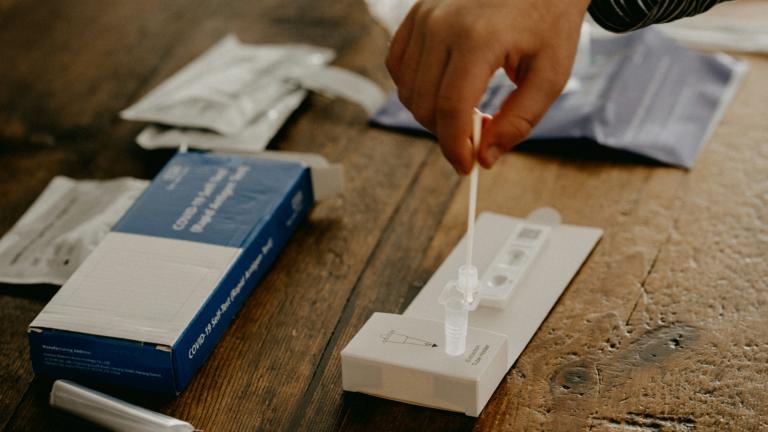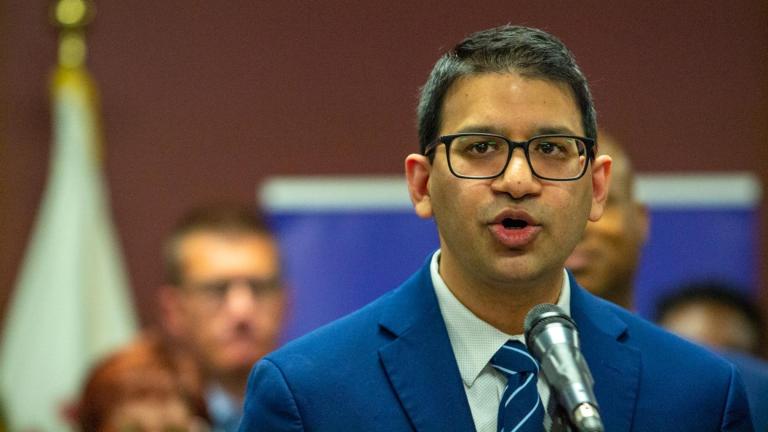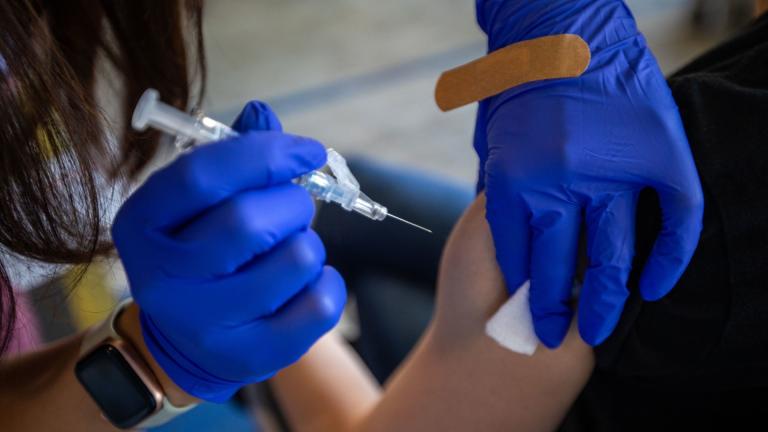The omicron variant of COVID-19 has been detected in a Chicago resident, Illinois’ and Chicago’s public health departments announced Tuesday.
The city’s public health commissioner Dr. Allison Arwady had earlier predicted it was just a matter of time, and said in the face of omicron and a rise in cases, the city is considering moving to require proof of vaccination in order for people to go to public spaces like bars or restaurants.
“I certainly am more interested in that than I am in needing to some of the major shutdowns,” she said. “Theaters and many other spaces have already been doing this, but it is certainly something that as this increase is continuing and certainly with the new variant we may do more of.”
That may entice those who thus far have not received the COVID-19 vaccine to do so.
State Rep. Jonathan Carroll, D-Northbrook, has proposed another method. He introduced House Bill 4259, which come January 2023 would require unvaccinated individuals who are hospitalized or need other medical treatment because of COVID-19 to have to pay any related costs out of pocket.
“People need to take the vaccine. It’s proven to be safe and effective, and it’s frustrating for those of us that are vaccinated that others are choosing not to be vaccinated,” Carroll said.
He said it would not be a government mandate, rather it would remain individuals’ choice. Actions have consequences, he said, this could be a consequence for not getting the COVID-19 shot.
“I don’t want to punish people. At the same time, it’s very difficult for me to understand why people aren’t taking this vaccine. It’s been out for a year. It’s proven to be effective, it’s proven to be safe. My limbs haven’t fallen off. I haven’t had Bill Gates following me around,” he said. “Polio was out there. People took the vaccine, we were able to eradicate polio.”
Carroll said those who are not vaccinated are contributing to clogged health care system.
A study by the Peterson Health Center and Kaiser Family Foundation found that over the summer “preventable COVID-19 hospitalizations among unvaccinated adults” cost over $5 billion.
There are legal hurdles to Carroll’s solution: The Affordable Care Act prevents insurance discrimination based on someone’s health status.
Carroll called his proposal a starting point for a conversation, and said he is open to other options, like a surcharge similar to that charged on a life insurance policy of a smoker.
Meanwhile, another just-introduced piece of legislation is taking the opposite tact.
Rep. Adam Niemerg’s HB4239 would forbid discrimination against anyone who chooses not to be vaccinated out of religious or personal beliefs.
“It shall be unlawful for any person, public or private institution, or public official to discriminate against any person in any manner because of such person’s refusal to obtain, receive, or accept a COVID-19 vaccination contrary to his or her belief,” the measure reads. “It is unlawful for any public official, guardian, agency, institution, or entity to deny any form of aid, assistance, or benefits, or to condition the reception in any way of any form of aid, assistance, or benefits, or in any other manner to coerce, disqualify, or discriminate against any person, otherwise entitled to such aid, assistance, or benefits, because that person refuses to obtain, receive, or accept a COVID-19 vaccination contrary to the person's belief.”
He said COVID-19 should be taken seriously and that it’s understandable that government leaders want to “fight this with every tool in their arsenal.”
“But public health should not be an excuse to take away our freedoms and liberties. We should take steps to promote public health but we must do so in the context of our rights as Americans,” Niemerg said at a Springfield press conference on Tuesday.
Niemerg admitted his proposal has a steep climb.
Gov. J.B. Pritzker in November signed a law (Senate Bill 1169 / Public Act 102-0667) that made changes to Illinois’ Health Care Right of Conscience Law – a measure he and other advocates say was intended to protect doctors and other health care employees with religious objections to abortions from not having to perform them, but which they say has been abused by people who are against vaccines as away to avoid their employers’ COVID-19 vaccine mandates.
The update clarifies that it is not a violation of the law for an employer to impose mandates on workers that are intended to prevent the spread of the coronavirus.
But that law does not take effect until summer; it takes extra votes for a law to take effect immediately, and there was not enough support in the General Assembly.
Follow Amanda Vinicky on Twitter: @AmandaVinicky








